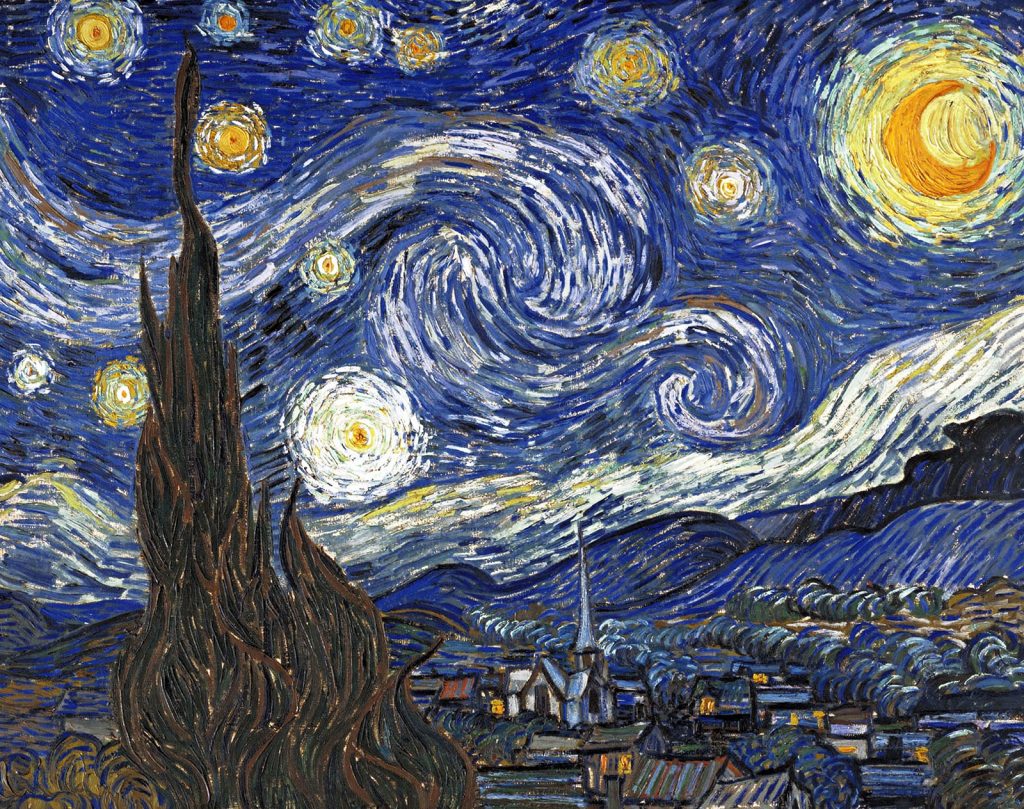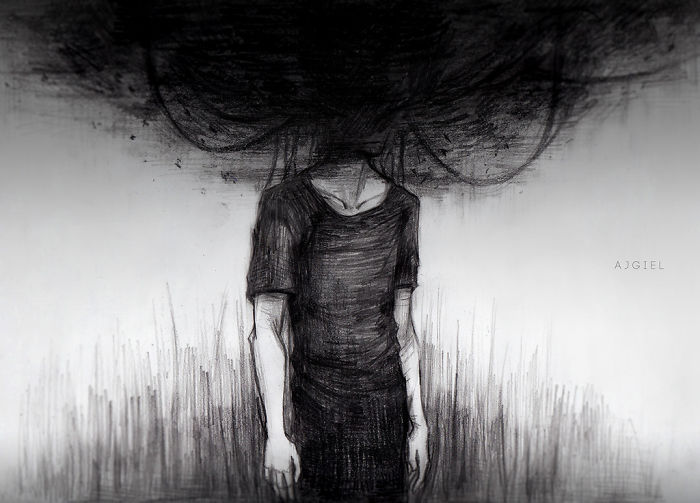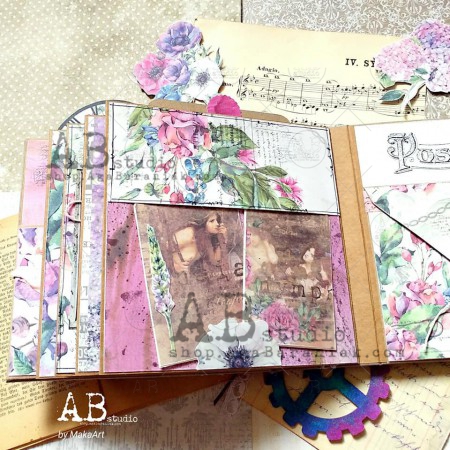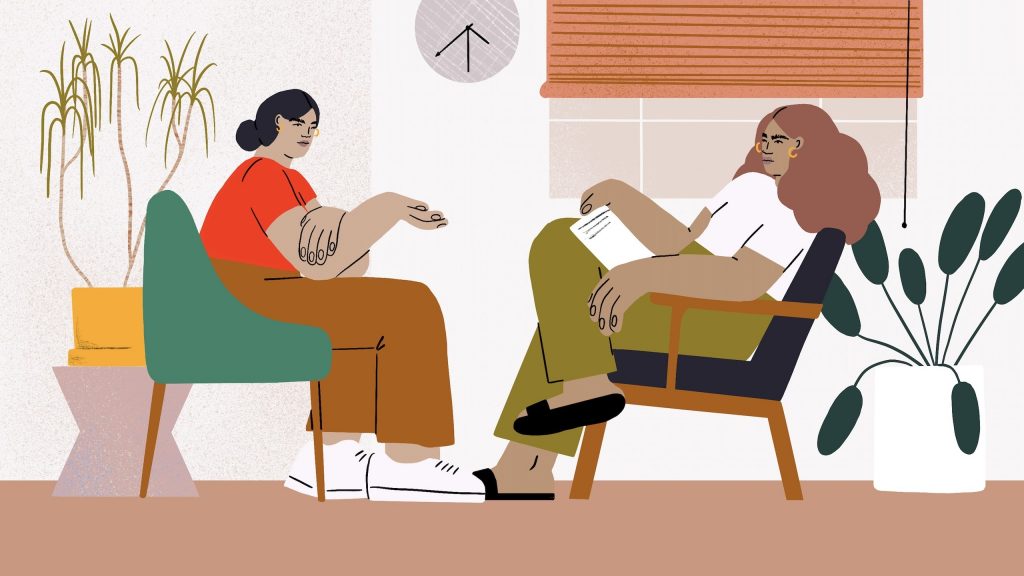My care package will be directed to Vincent Van Gogh. Vincent Van Gogh, hate him or love him, is the most famous and recognizable artist of Western Art to this day. Those who don’t even know art, know what the Starry Night (1889) is. His influence and impact on the Impressionistic movement and on modern art does not go unnoticed through his characteristic brushwork of tiny repeated strokes. He has had countless exhibits, novels and movies about him. Individuals that have payed more than 80 million dollars for a single painting. Vincent Van Gogh is one of the most successful painters that has ever lived. But that is now. While Vincent was alive, he was everything but that. He exemplified what a troubled artist was. He was poor, a drunk and a struggling artist. His style was seen as distasteful and ignored by most. In addition, he suffered from terrible depression and social anxiety which outcasted him even more from society. Friends were hard to come by, and the few that did would leave him or die of suicide namely Henri Toulouse-Lautrec. Vincent followed the same footsteps as Toulouse-Lautrec and took his own life by shooting himself in the chest. He would succumb to his injury two days later. Vincent as an artist wanted to be understood and accepted. For him, recognition was more important than money. Vincent once said he wanted to “Touch people with my art. I want them to say ‘he feels deeply, he feels tenderly’” (Vincent Van Gogh, Loving Vincent). Sadly, it was something he was never able to achieve during his time alive. Most of this I have learned in my Survey and Principle of Illustration class. We had been revising the most important artists of the Impressionism movement such as Claude Monet, when he had finally begun discussing Vincent Van Gogh. I found it stupefying and saddening how much Vincents life and success during his time alive contrasted to his current legacy. I couldn’t help but think– If only he would know. All what he is now is exactly what he wanted to be before. This is exactly why I want to create a care package for him. He, himself, apart from his artistic career needed a lot of care to begin with. His artistic career, which encompassed most of his life, only worsened his state of mind.
This care package will hopefully give him an insight on his future success and give him a sense of purpose and meaning, fulfilling a “basic psychological need”(Harris 5). I hope Vincent will gain confidence, happiness and overall self-satisfaction. I want this care package to not only focus on improving his mental health by educating him on depression and giving him the resources necessary to help him, but to expose him to his artistic success and impression/impact as well. Like anyone, he needed to feel important, loved and understood which is my end goal.

“Qu’est-Ce Qu’une Œuvre ? Création et « acte Fou » Chez Vincent Van Gogh.” is scholarly article is about Vincent Van Gogh’s impressive take on what can be considered art. Jean-Louis Bonnat ignores the style and the technique of Gogh, and focuses predominantly on the meaning and significance of his work. The author describes the uniqueness of his artworks given that what he paints represents subjects that are “real in the world” (22) but still remain poetic and obscure. He explains how out of the box Vincents art is due to “the impossibility of giving the themes of the painted works a title, a situation, according to our need to singularize and therefore to name the paintings or their subjects.” (20). This article will contribute to my care package for myself to be able to understand the extreme depth of Vincent’s work but all well to bring Vincent an understanding of how important and how well-received his art has been. The author writes in an extremely beautiful and elegant way, creating an emphasis on how significant and unique Vincent is. That will offer even more of an insight to Vincent on how much his work has impacted modern art. I hope that Vincent will be able to find and understand his self worth not only in the artistic world but also in his personal life.

In summary, the article “Is Everything You Think You Know about Depression Wrong?” is about depression, its history and his current perception on mental health. Johann Hari introduces depression through a more medical perception, that is that is caused by a chemical imbalance in our brain. He goes on to introduce his own research on depression, and his new discoveries on the topic explaining that the decline of our mental health is causes by unmet “ basic physical needs” and “basic psychological needs” such as finding meaning and purpose (5). I believe that this article will not only educate Vincent on certain sentiments he might be feeling, but I truly think it will resonate with him. Vincent wanted nothing more then to be recognized and feel that he had meaning in the world of art. He went to great lengths to feel any recognition or attention such as eating tubes of paint and sending his chopped ear to a prostitute as a display of love. I hope he will find comfort in knowing he isn’t alone, that his feelings are rational and that there is a way around it all.

I’ve thought long and hard about what book I wanted to recommend to Vincent Van Gogh. The criteria called for a book that I had read and thought would come to your interest or benefit. But there is one major problem in that, I hate reading. No, hate is a strong word. I dislike it. The only books I’ve read that I have enjoyed is a series called The Hangman’s Daughter written by Oliver Pötzsch and beautifully translated by Lee Chadeayne. But I don’t see the purpose behind recommending a murder mystery book taken place in 1660. There are plenty of good books out there and this didn’t stand out as the type of novel that would benefit you. It’s not that I didn’t want to try and read a book for his sake, I just lack the motivation and interest in novels to read it, to realize at the end, it’s not the one. So to counter the issue, I thought to myself that there had to be different types of books – graphic books, coloring books, notebooks. I thought a scrapbook would be perfect. Some millennials, including myself, know it as an activity that old caucasian housewives do in their spare time, kind of like a hobby. Vincent took pleasure in explaining and describing how he felt, his memories and his present life to his brother Theo. You would even sometimes send him some of your artworks. It might have been therapeutic for you, who knows. But this is why I am determined to get you to scrapbook. With scrapbooking, he will be able to implement all that he love about writing letters and add more. More creativity, more expressiveness and a better representation of what Vincent is thinking. It might remind him of times worth remembering, times that made you happy and put him in a good mental position. This is an activity, therapeutic but not overly so where it might feel like a chore.
Loving Vincent, directed by Dorota Kobiela and Hugh Welchman is a film about a young man’s journey as he comes to deliver Vincent Van Gogh’s last letter to his brother Theo. However, during his time there he becomes infatuated with Vincents life and decides to investigate it. This movie depicts the depressing and moving life of the troubled artists in an incredible detailed and poetic manner. The most important part however is not the story. Loving Vincent is the first fully painted feature film. Each frame, 65,000 in total, was hand-painted with oil to emulate the iconic style of Vincent Van Gogh. This goes to show how much Gogh’s art has touched the public and how willing some are to represent and tell his story in such a manner that is true to Vincent. It shows respect, admiration and dedication. This will really show Vincent that he is one of the most recognizable artist their is, comparable to the Masters such as Picasso, Carravagio and Da Vinci. That his life and suffering did not go unnoticed and that his legacy will move on. I hope that will put him at peace and show him that he has touched more people then he could ever believe which had been a lifetime goal.
I chose the song Tubular bells by Mike Oldfield. He is a musician who operated with a beautiful balance of technical precision and artistic liberty. Somewhat like Vincent. I am certain Vincent will find his song Tubular Bells extremely interesting. I had thought of recommending him a song that would only be able to evoke a certain emotion of happiness but I felt it to be too patronizing. When Tubular Bells was created, it epitomized the era of experimentation. During 25-minute song, Oldfield plays a mixture of instruments, composing them in different ways, changing the melody, the beat which in turn makes for a certain musical journey when listening to it. It is so abstruse and different that anyone could find something that attaches them to the masterpiece. From beginning to end, you are taken on a musical journey crossing paths with each emotion on the spectrum. Some have any used the songs as therapy. I believe that this song might also come to Vincent for therapeutic purposes as well. I am not asking him to love the song as I am sure classical music is more your taste, but I ask him look beyond personal taste and to recognize the talent, just as many people have done for his art. It hope it will enable Vincent to capture the emotion that he hasn’t felt before, to increase his artistic expression and to distract him from the outside world which can be cold and cruel as it did for me.

When it comes down to it, Vincent Van Gogh had major health and mental issues. He was ignored as an artist and alone. When he tried to get close to people, they often pushed him aside or died such as his closest friend Henri Toulouse-Lautrec, another Parisian artist. Vincent needed someone to talk to and wasn’t able to do so which is why I believe therapy would be perfect. Back then, mental health wasn’t even known. His depression and troubled soul was seen as disturbing. However, now, mental health is one of our number one priorities. I believe with the right kind of help that our current recourses can offer, Vincent could be in a much better space mentally and potentially physically. It is also important that it is fully payed as Vincent had barely enough money to feel himself.
